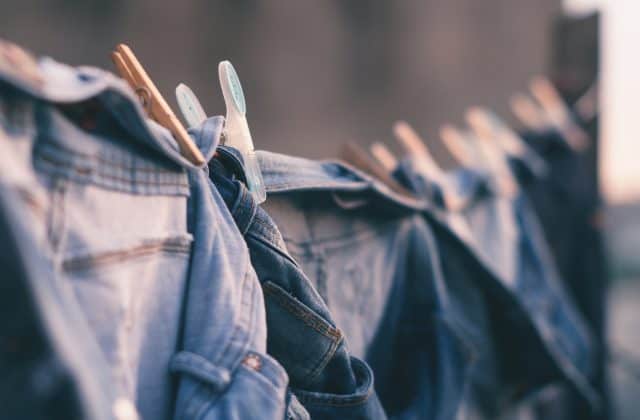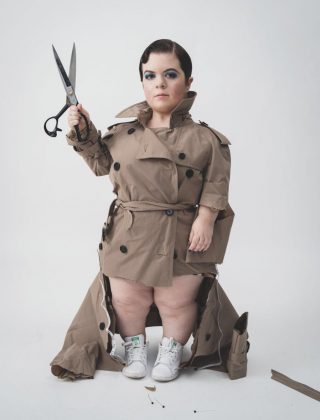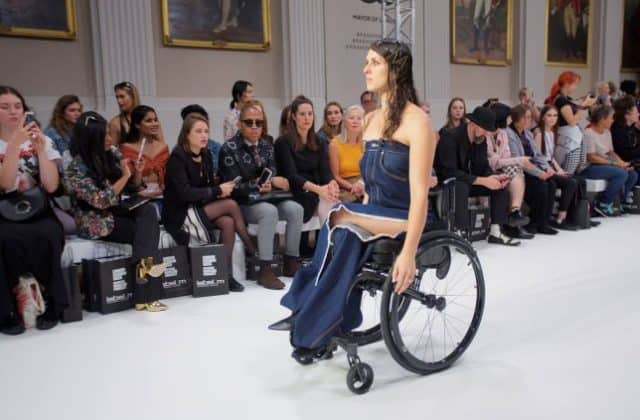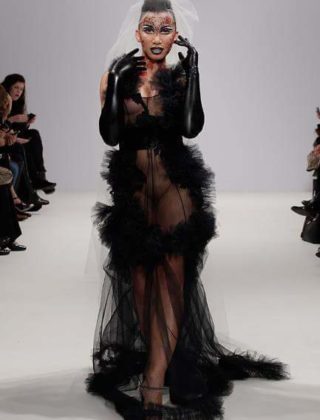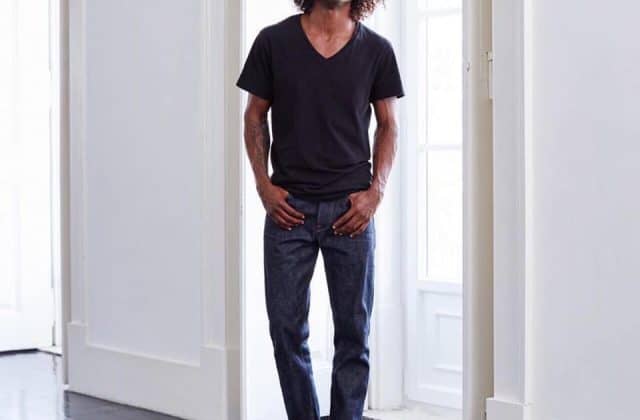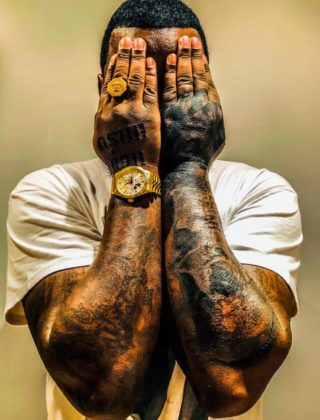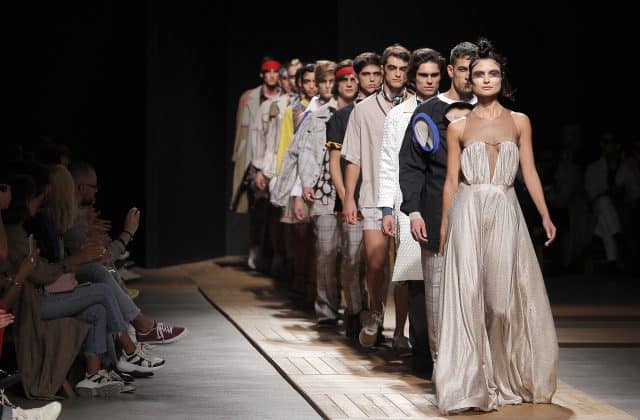Everyone has in your closet a simple pair of jeans.
We all have one, including me.
Synonymous of a basic and democratic fashion is also one of the pieces that most pollute the environment.
In 1567, the terms “genoese” and “genes” came to refer to the pants worn by the sailors of the city of Genoa. They were manufactured in the city of Nimes, France. As late as 1792, the textile industry in Maryland in the United States popularized the use of a woven cotton fabric that called denim, because it is similar to fabric fabricated in Nimes.
But the ultimate discovery was due to Jacob David and Levi Strauss in 1872, with the first batch of the famous Levi’s 501.

Jeans first appeared on a show with Calvin Klein (1978) defending the democratization of Fashion with jeans: “I want girls who do not have the money to wear my clothes, wear my jeans.”
Jeans became the uniform of the world that did not look at classes, cultures, countries and religions,symbol of freedom and rebellion.
As for the present day?
We still do not live without them. And the textile industry is grateful.
However, this business of billions is made at a “very high price” for our environment.
© Water DocsAccording to Levi’s, about 3,800 liters of water are used during the life of a jeans: 68% of this consumption occurs in the cultivation of cotton, while 23% occurs in the consumer’s home due to the numerous washes.
There are several experts who argue that sea level has risen due to global “greed” for this piece.
Beginning with the overuse of groundwater for irrigation of cotton plantations (for example) – which have an impact up to 1/4 on sea level rise (more than 3 millimeters per year); passing through the paints and dyes used to wash the pieces, to have that “worn down look” and reaching the end consumer’s hand, a lot of water runs.
Too much water!

The amount of water needed to produce and finish a pair of blue jeans can reach 300 liters.
Faced with alarming numbers, the industry began to react and create effective solutions that combine ecology and sustainability. Namely, jeans began to appear in the market produced with organic cotton and new forms of washing.
A new consumer awareness dictates the production of more sustainable lines to respond to this “new” market niche, more eco-friendly.

10 sustainable denim brands that you cannot miss
LEVI’S
View this post on Instagram
It implemented more sustainable changes in water consumption and warned, with factual data, how much it spent (in energy and water) to produce the iconic 501 model. In 2011, its designers brought a new technique: “Water < less ™” that has the capacity to save 96% of water during the usual denim production process. Levi's is working with entities such as the “Better Cotton”Initiative and the “Sustainable Apparel Coalition”and plans to move exclusively to sustainable cotton by 2020.
CITIZENS OF HUMANITY
View this post on Instagram
Headquartered in Los Angeles, Citizens has been committed to the sustainability of denim since 2018. Among other things, it is one of the first brands to adopt laser technology in their jeans. This advance contributes to the saving of liters and liters of water in the production of its parts, as well as reducing the emission of harmful gases up to 30% of the usual emissions. Citizens of Humanity also invested in more advanced washing machines, thereby reducing the energy of the appliances used during the production process to 70%.
AYR
View this post on Instagram
AYR jeans have a very impressive position: every pair of their Aloe Jeans is made of recycled denim, requiring only one glass of water for the entire production process from start to finish. Born and raised in LA, AYR donates part of its profits to charities every season.
Currently, 20% of sales of the Aloe Jean model goes directly to the “Fresh Air Fund” whose mission is to help disadvantaged children access outdoor activities programs during summer, among other initiatives.
EDUN
Ver esta publicação no Instagram
Almost on the high-fashion frontier, Edun is one of the great holders of the most chic and sustainable denim on the market. Their jeans are produced in Kenya by local craftsmen, having his signature proven in organic materials. Together with Levi’s, it works with the “Better Cotton Initiative” to drastically reduce the environmental impact of cotton production.
KOWTOW
Ver esta publicação no Instagram
Existing in the market for more than a decade, the minimalist Kowtow waited until the spring season 2018, to introduce the sustainable denim in its proposals. Their production materials are totally geared towards #ethicalfashion and their denim is made of 100% organic cotton. All pairs of blue jeans are washed according to the global standard dictated by the organic textiles. (approved enzymes that ensure a sustainable dyeing process without water chemistry).
REFORMATION
Ver esta publicação no Instagram
The textile industry contributes to 6% of the garbage in the fields in the United States. Due to this fact, Reformation decided to go on to buy the “leftovers” of discarded denim. Among the leading brands is Levi’s in this successful partnership. During the “recycling” process it is proven to reduce greenhouse gas emissions every year.
BLANCHE
Ver esta publicação no Instagram
Of Danish origin is founded by Melissa Bech and Mette Fredin. This sustainable brand is surprisingly affordable, with prices around 100/150 euros.
OUTLAND
Ver esta publicação no Instagram
Initially created with the commitment to alert to the risk of sexual exploitation of young women, Outland is also focused on environmental issues. Namely, it has its organic cotton plantations in a rural area of Cambodia and employs younger women from the local community (who are at risk of sexual exploitation). Received a rating of A +, given by the audit of the “World Aid Ethical Fashion Report”.
BOYISH
Ver esta publicação no Instagram
Each pair of jeans is made from 30% recycled cotton, and their buttons are crafted from metal scrap from scrapyards. The brand invests a large part of its profits in associations that fight for the preservation of the planet, among them: Fair Trade USA, Friends of the LA River, Solar Sister.
WARP + WEFT
Ver esta publicação no Instagram
Most denim brands rely on materials such as cotton to survive. However, the differentiating side of Warp + Weft is based on recycling of 98% of the water used in the manufacture of its parts. They use a technological invention called “Cutting-Edge Dry Ozone” to remove chemicals from the water, such as Bleach.
